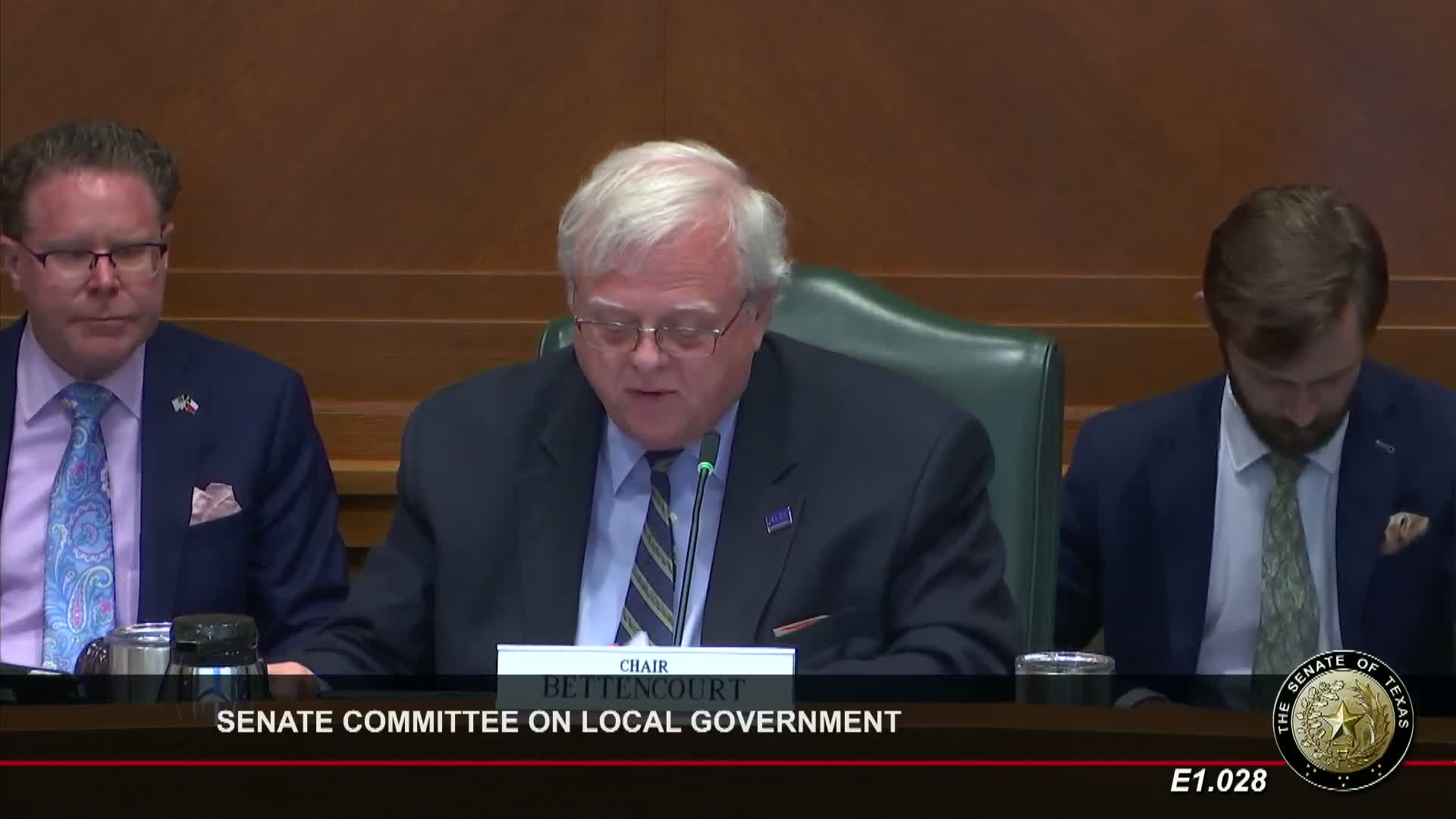Article not found
This article is no longer available. But don't worry—we've gathered other articles that discuss the same topic.
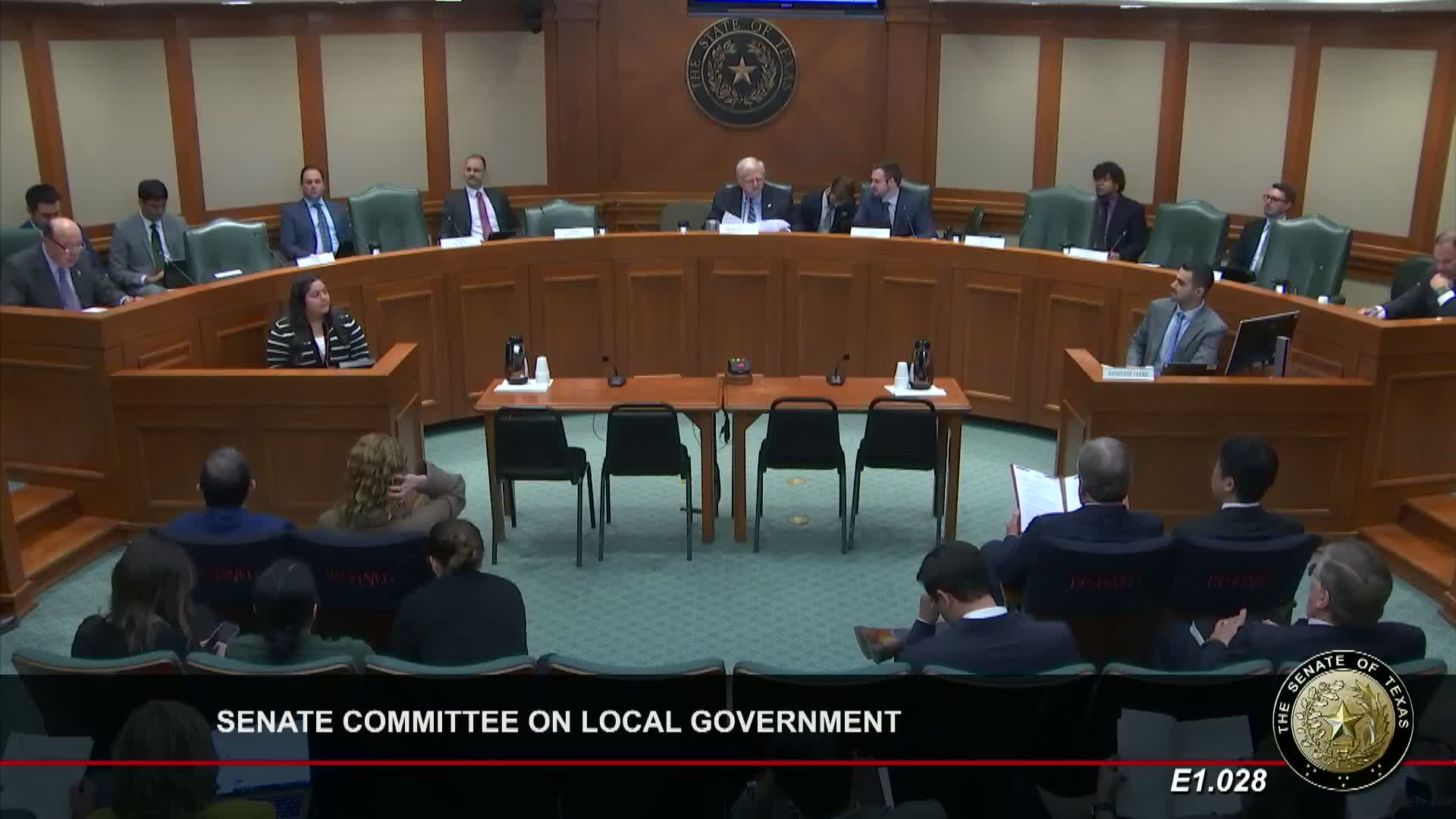
Committee hears bill extending legal presumption for first responders who suffer heart attacks or strokes after duty
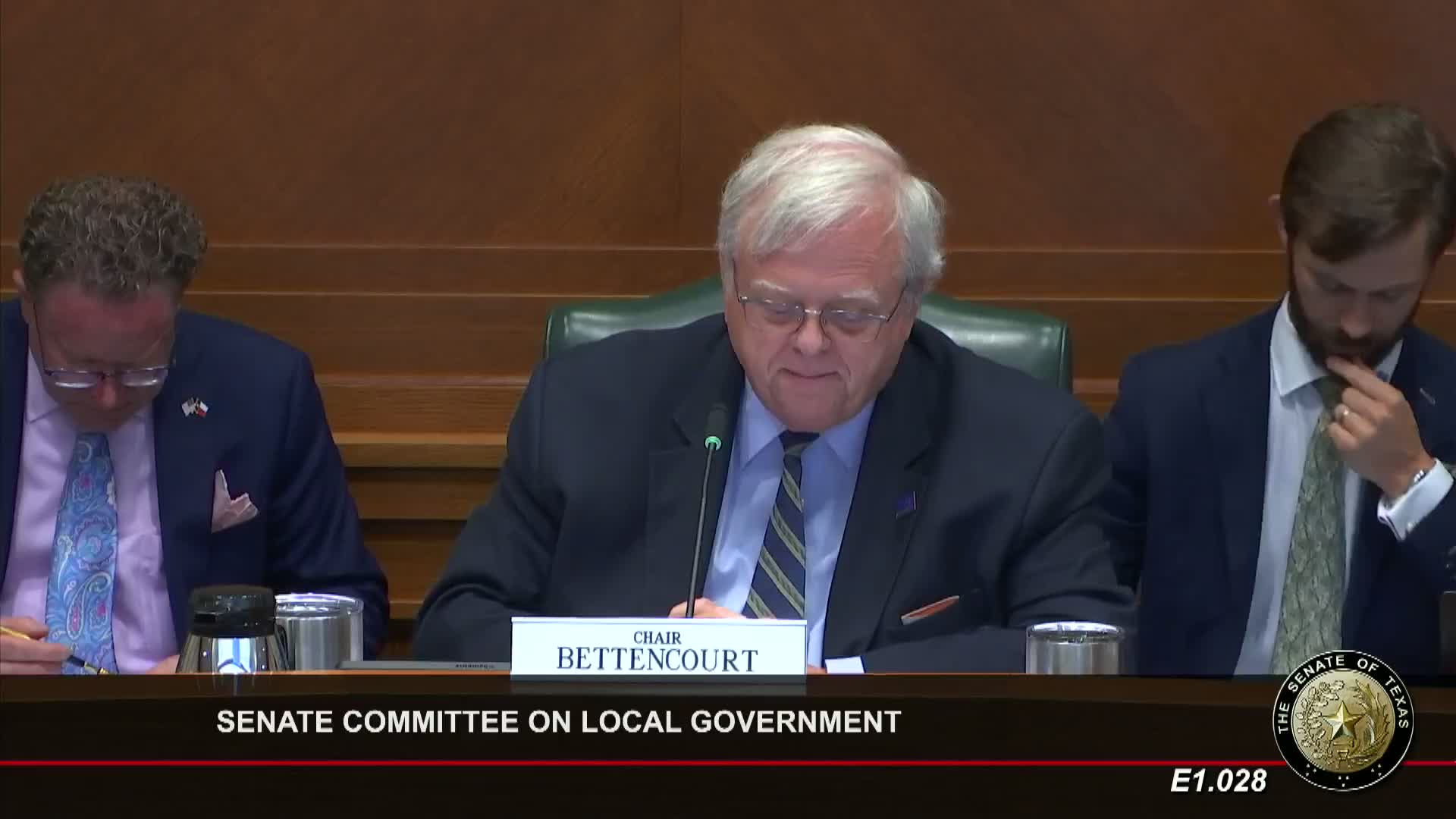
Committee considers local provider participation fund to support Burnet County hospital
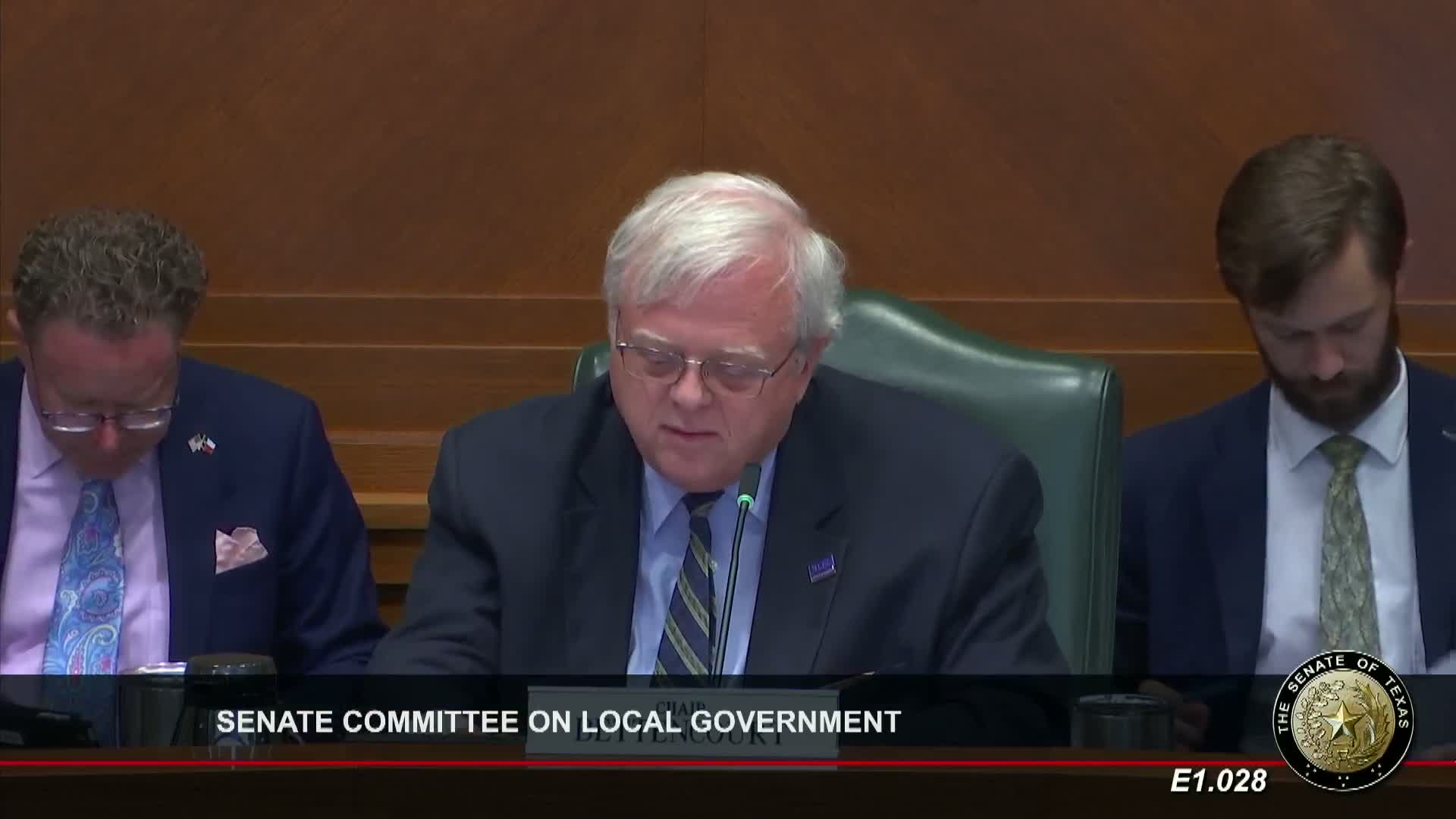
Committee hears testimony supporting exemption for perishable inventory and refrigerated medicine
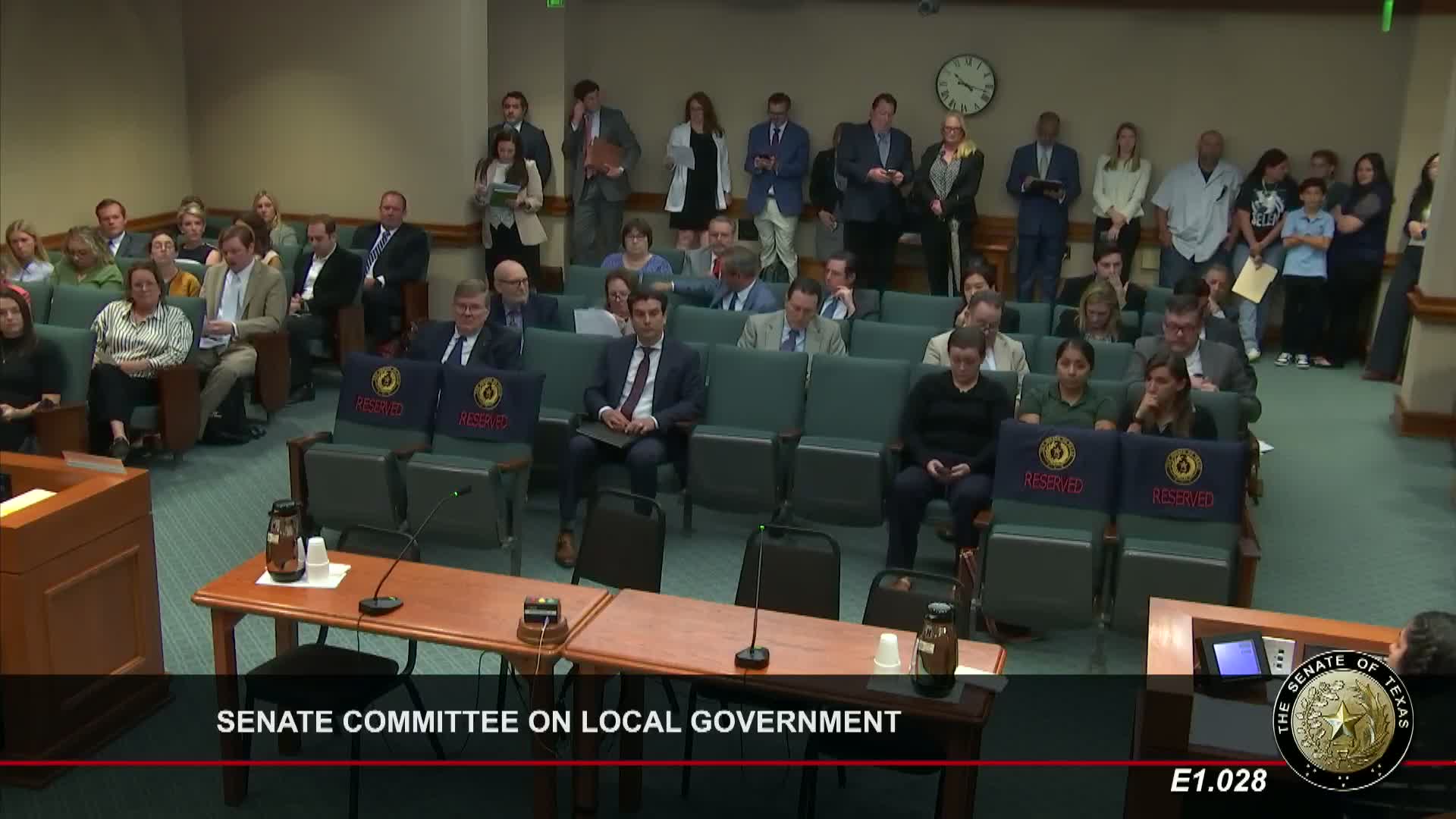
Senate committee advances proposal to raise business personal property exemption to $125,000
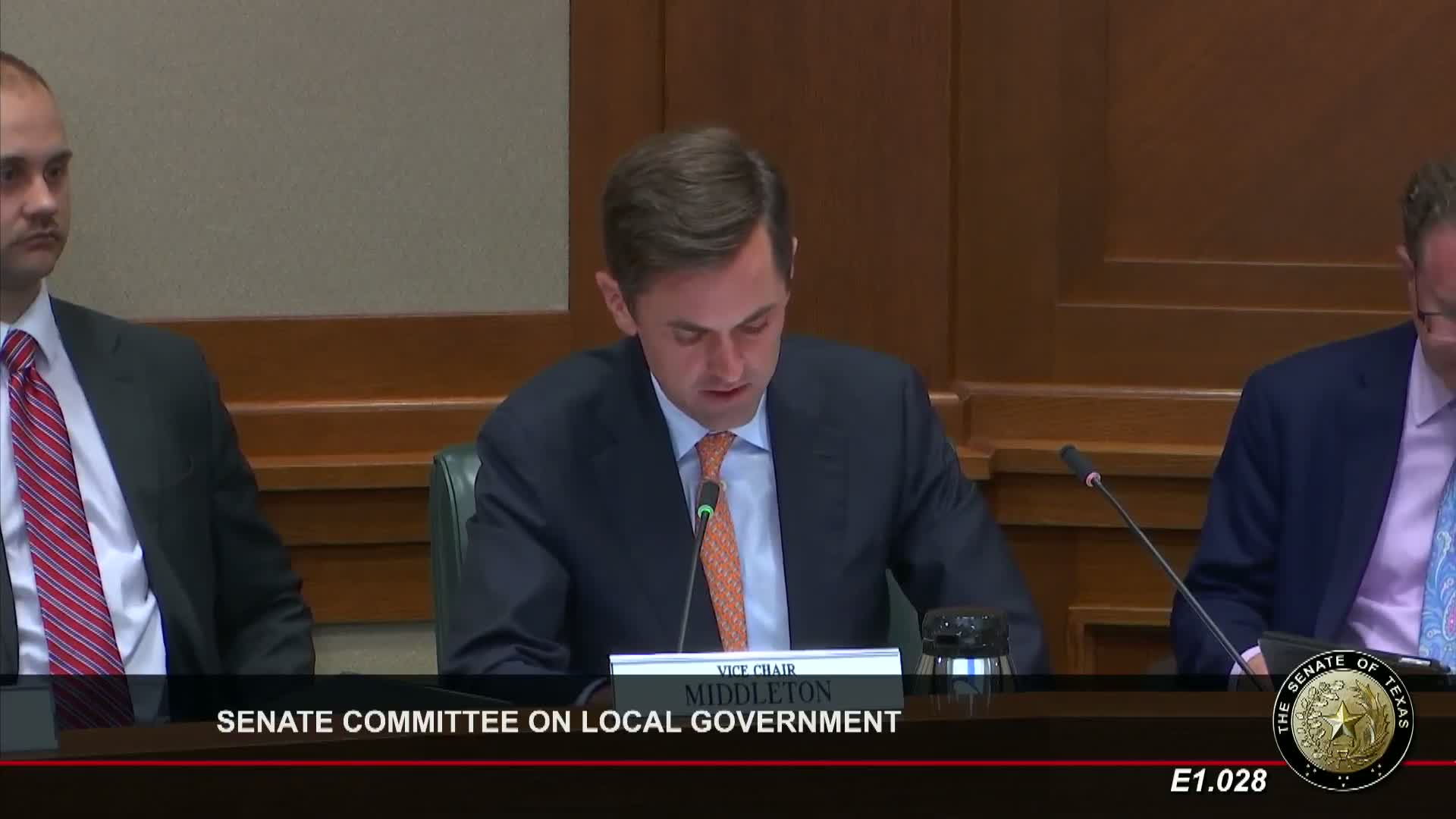
Committee hears sponsor and law‑enforcement witnesses supporting lower population threshold to block petitions removing municipal civil service
